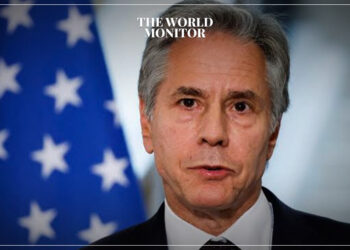In a pivotal shift, European nations are aligning with Algeria’s approach towards addressing the perplexing issue of illegal migration, by focusing not just on stringent border controls but also on mitigating its root causes.
At the conclusion of a summit between the leaders of Mediterranean countries within the European Union – grouped under “MED9” – a joint statement emphasized addressing the issue from its roots through robust and comprehensive partnerships with all partners in the Southern Mediterranean region.
Political analyst Abdelkader Soufi accentuates that Algeria has consistently advocated addressing the core reasons behind illegal migration, not merely enforcing security measures at the European borders. This approach entails addressing the factors that motivate Africans to migrate, such as developing their home countries.
Soufi also highlighted that Algeria has undertaken initiatives to assist African countries by allocating approximately one billion dollars in financial aid and establishing partnerships to enhance their infrastructure through numerous projects like the Pan-African Unity Road.
Analyzing Europe’s previous strategy, Soufi criticizes its lack of probing into the root causes of migration due to a belief that simply thwarting migrants was sufficient to curb the phenomenon. Now, it is adopting the Algerian approach, which considers combating migration by assisting African nations in ensuring a decent living for their citizens.
According to another political analyst, Jilali Shakroun, this call harmonizes with the Algerian approach that has worked towards dismantling the phenomenon by addressing the migration file on its territory, through offering some migrants who wish to voluntarily return to their countries the means to establish projects in their native lands.
The intricate issue of irregular migration from Africa towards Europe has persistently posed multifaceted challenges. Historically, European approaches have predominantly been criticized for primarily adopting a securitized stance, rather focusing on border controls than addressing the foundational socio-economic and political issues prompting migration. The Algerian methodology, conversely, seeks to probe the deeper socio-economic disparities and infrastructural deficits that catalyze migratory flows in the first place.
In the broader context, Africa has been grappling with challenges such as local development issues, lack of infrastructure, environmental and health problems, and crises that often lead to ethnic conflicts. Besides, the exploitation by multinational companies, which hinders the development of these countries and contributes to the growth of perilous phenomena like terrorism, organized crime, and migration, forms a critical backdrop against which these migratory patterns must be comprehended.
Through adopting Algeria’s approach, Europe signals a more holistic methodology, aspiring to underpin development and stability in migrant-origin countries, thus addressing not just the symptoms but the root causes of migratory movements. This collaboration may pave the way for more sustainable solutions, transcending mere border security and venturing into a realm where migration is addressed more as a developmental issue than a security problem.
Engaging SEO keywords: European Union, Algeria, illegal migration, MED9, Mediterranean states, African development, root causes, socio-economic issues, partnerships, migrant-origin countries, border security, Algerian approach to migration.






